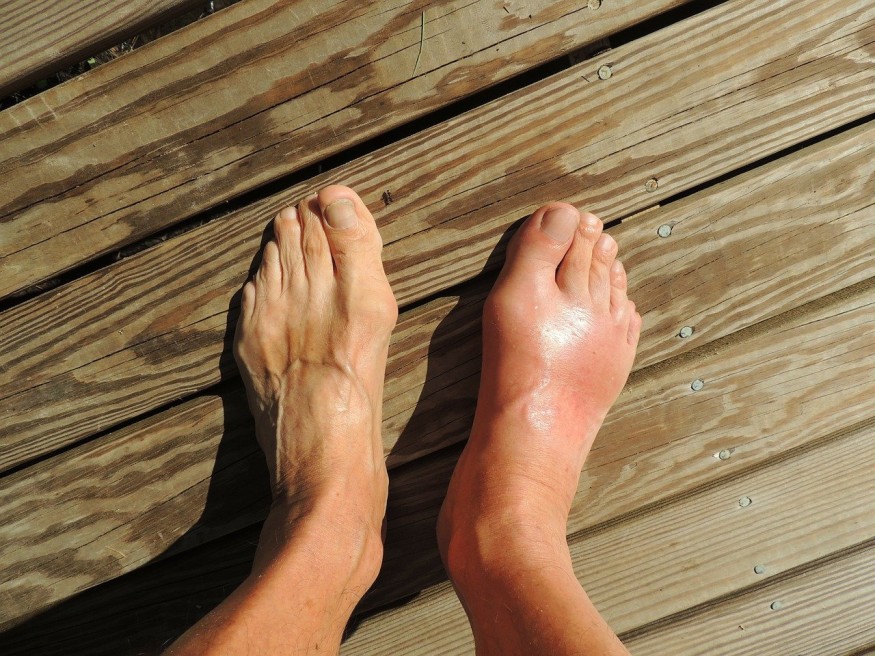
Colchicine, the ancient Greek medicine used to treat gout, could cut the risk of COVID-19 death by as much as 50%. The new study led by researchers from the Hebrew University of Jerusalem examined studies of the drug, including four studies focusing on COVID-19 that involved 6,000 patients.
Israeli researchers found significant improvement in severe coronavirus cases and decreased mortality rate to those treated with colchicine. The findings are significant because the medicine is cheap and requires only half a milligram dose per day. However, previous studies also found mixed results of using colchicine, in which some say it is effective, and others found no benefit from using the drug.
Ancient Greek Gout Treatment Could Prevent COVID-19 Death by 50%, Study Claims
Colchicine Improve Treatment of Severe COVId-19 Cases
In the study, titled "Colchicine - New Horizons for an Ancient Drug. Review Based on the Highest Hierarchy of Evidence," published in the European Journal of Internal Medicine, researchers claim that the medicine derived from the saffron plan reduces the risk of COVID-19 mortality by up to 50%.
Before this study, previous research has shown that colchicine has no significant positive effects on COVId-19 patients. Mail Online reported that a meta-analysis of six studies from an Indian research team at GMERS Medical College Gotri in Gujarat showed that colchicine does not reduce the risk of mortality, need for ventilator, intensive care unit admission, and length of hospital stay.
Also, the clinical trial of a British study in March that tested the gout medicine on hospitalized COVID-19 patients was halted after a sub-study of the trial found that the treatment had no effect on the patients.
But Professor Ami Schattner told the Jerusalem Post that it would not stop him from using the drug on high-risk patients to lower their chances of severe COVID-19. He said that the results of the new study they worked on show "very promising" and worth exploring results.
Professor Schattner added that the drug is a low-cost medicine for the patients and the community and that there is nothing to lose in using it on COVID-19 patients but much to gain.
Since the pandemic began, a few gout drugs have been analyzed to see if they are potential COVID-19 treatments because of their anti-inflammatory properties that can reduce some of the effects of COVID-19.
Despite these initial results, Professor Schattner noted that more patents must be in randomized controlled trials to verify the results. He said further research is needed.
ALSO READ: 4 in 10 COVID-19 Cases Are Asymptomatic Demonstrating Importance of Testing to Mitigate Transmission
What is Colchicine?
According to WebMD, colchicine is used to prevent flares or gout attacks. Symptoms usually develop suddenly and involve one or a few joints, such as in the big toe knee or ankle joints.
The medicine works by decreasing the swelling and build-up of uric acid crystals that cause painful gout symptoms in the joints. Also, it prevents painful sensations in the abdomen, chest, and joints. The colchicine drug produces the protein amyloid A that builds up in people with the inherited disease of Mediterranean fever.
Moreover, Mayo Clinic said that the drug could be used in two ways. Some would regularly take the drug in small amounts for months or years to prevent severe attacks caused by the inflammation. Meanwhile, other people take large doses of colchicine in a short period, like within several hours, only when needed to relieve an attack.
Experts said that side effects of the drug are significantly lesser when taken with the first approach as a preventative kind of treatment. Its side effects could be severe and need to be discussed with the doctor. The drug is available in capsule, solution, and tablet.
RELATED ARTICLE : Can Mouthwash Treat COVID-19? Reduction of Virus in the Mouth Possible But Is Not a Cure
Check out more news and information on COVID-19 on Science Times.
© 2025 ScienceTimes.com All rights reserved. Do not reproduce without permission. The window to the world of Science Times.











